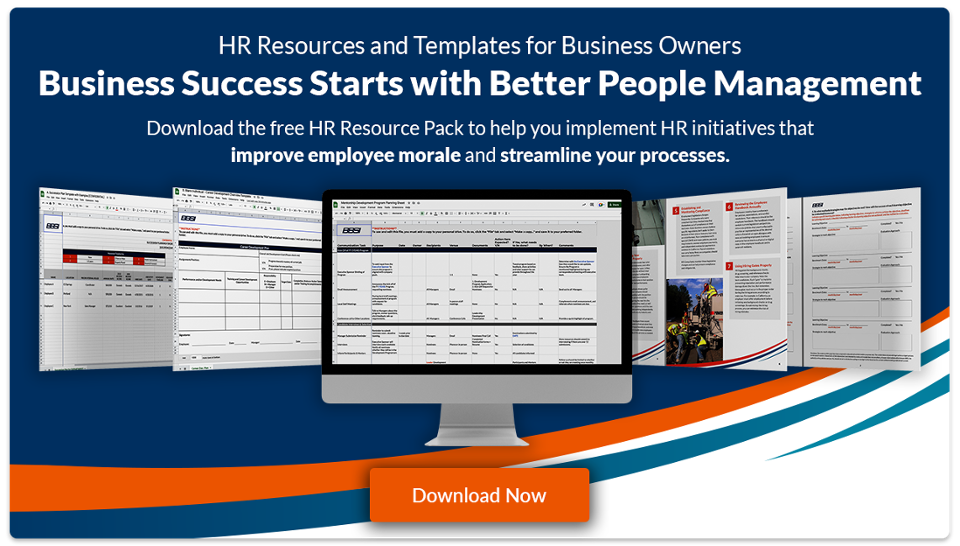
A Comprehensive Guide to State-Mandated Retirement Plans
After many years of hard work, most people hope to enjoy a comfortable retirement. Unfortunately, over half of American households have no retirement account savings. Moreover, 32% of private sector workers need help accessing employer-sponsored retirement plans.
To address this issue, many states have started implementing state-mandated retirement plans. While these plans can help employees prepare for retirement, they present legal challenges for employers, especially those who hire employees across multiple states. One reason is how state-mandated retirement plan requirements vary notably from one state to the next.
In this article, we’ll explain how state-managed retirement plans work. We’ll also examine how business owners can comply with state laws by partnering with an experienced Professional Employer Organization (PEO) like BBSI.
Understanding State-Mandated Retirement Plans
Research shows that people are 15 times more likely to save for retirement if their job offers a retirement plan and 20 times more likely to save if their retirement contributions are automated.
With these statistics in mind, states have started implementing state-mandated retirement plans to encourage more people to save for retirement. These plans can close gaps among people who don’t currently have access to employer-sponsored retirement benefits.
Here are some notable features of state-mandated retirement plans:
- Company size specifications: Depending on the state, state-mandated retirement plans may be required for all companies or only those with a certain number of employees.
- Roth Individual Retirement Accounts (IRA): Most state-mandated retirement plans are IRAs. These retirement accounts allow employees to contribute taxed income and withdraw it tax-free in retirement.
- Automatic enrollment: Employers must automatically enroll all their employees into their state-managed retirement plan (unless they have an alternate retirement plan). Employees can either stay enrolled or opt-out.
- Employee customization: Employees participating in state-mandated retirement plans can set their contribution amounts and select from various investment options.
- Portability: Employees participating in state-mandated retirement plans can carry over their savings from job to job.
- Limited employer involvement: State-mandated retirement plans are typically one-size-fits-all. In turn, employers don’t get to customize their benefits.
While employers who participate in state-mandated retirement plans don’t get much say in the benefits, they still bear responsibility for managing their implementation. Employers must set up a system to ensure proper payroll deductions and educate their employees on the program’s offerings.
The Growing Prevalence of State-Mandated Retirement Plans
Many states are pushing for state-mandated retirement plans to combat the growing retirement crisis. As of 2023, 19 states have passed laws or have pending legislation about state-mandated retirement plans. Nine of those states’ laws are currently in effect.
Retirement plans have become an essential topic of discussion in recent years due to inflation and the increasing cost of living. Saving for retirement is simply more complicated than it used to be.
State-mandated retirement plans have the potential to benefit low and moderate-income earners the most. These workers often have less access to employer-sponsored benefits than their high-earning counterparts.
How Do State-Mandated Retirement Plans Impact Employers?
While state-mandated retirement plans benefit employees, the implications for employers are slightly different. Complying with state-mandated retirement requirements can present many challenges for employers, such as:
- Increased Administrative Responsibility: State-mandated retirement plans require employers to automatically enroll eligible employees by their state’s registration deadline. Setting up this enrollment can place administrative burdens on small businesses.
- Payroll complexities: Like Social Security, state-mandated retirement plans deduct employee contributions directly from their paycheck. Factoring in these deductions can make payroll more complicated.
- Legal liability: States can fine employers who fail to comply with their mandated retirement plans. Fine amounts can vary from state to state.
Fortunately, you don’t have to navigate retirement plans alone. A PEO, like BBSI, can handle administration and payroll for you and ensure you’re always compliant.
What Makes a Retirement Plan a Good Fit?
Many states allow employers to opt out of their state-mandated retirement plan if they offer an adequate employer-sponsored alternative. Employer-sponsored retirement plans give employers more control over the benefits they provide. For instance, employers can offer employer matching on their employees’ contributions up to a certain percentage.
These extra benefits can help companies attract and retain talented workers in a competitive job market. However, these plans often take more time and effort than their state-mandated counterparts. That’s because employers must:
- Evaluate if an employer-sponsored plan is right for their company: Companies should weigh the pros and cons before setting up an employer-sponsored retirement plan.
- Select the right plan: From 401(k)s to SIMPLE IRAs, business owners can choose from many employer-sponsored plans. These plans can differ in benefits, fees, and ongoing administrative costs.
- Prepare for administrative burdens: Some states assist business owners opting for the state-mandated plan. In contrast, employer-sponsored retirement plans typically leave all administrative responsibility to the employer (or their PEO). For example, employers must maintain detailed records, comply with all relevant regulations, and educate employees on retirement account management and contributions.
As you can see, employer-sponsored retirement programs can give you more control and flexibility over your company’s retirement benefits, but this flexibility can come at a cost.
Challenges and Pain Points
As an employer, state-mandated retirement plans can present many challenges. Most notably, you must familiarize yourself with your state’s requirements. This can be a tall order if you have employees in multiple states.
If you choose to provide an employer-sponsored retirement plan, you may not have to deal with different state requirements, but you’ll still need to ensure your alternative plan meets the exception criteria.
Keeping up with regulations across multiple states can be difficult, especially as more states adopt this type of legislation. It’s much easier to outsource this task to a pro, like BBSI. We can keep your company current on all relevant regulations and ensure your payroll and benefits are set up accordingly.
The Future of State-Mandated Retirement Plans
As noted above, many states have state-mandated retirement plan legislation in the works, and more states will likely follow suit. Since the landscape of state-mandated retirement plans is quickly evolving, employers need to stay on top of their states’ rules and requirements.
There’s always a possibility that the federal government will step in and mandate a national retirement program at some point. This could be advantageous for employers and employees alike. That’s because a national program would ensure:
- Standardization across states: If all states had the same mandated retirement plan requirements, employers operating in multiple states would have a much easier time ensuring compliance.
- Widespread coverage: A national retirement plan could help close any remaining retirement savings gaps in states that have been slow to adopt such legislation.
While a federal retirement plan could benefit employers, some states may be more resistant to the idea than others, depending on their political leanings and population size.
How BBSI Can Assist with Retirement Plans
In summary, state-mandated retirement plans are essential for many small and large enterprises.
If you need support for your company’s retirement plan, BBSI is happy to help. Whether you want to use your state’s mandated plan or offer your employees a more robust employer-sponsored alternative, we can manage everything on your behalf.
Want to learn more about our PEO services? Reach out to BBSI today.
Frequently Asked Questions (FAQs)
1. What states currently have active state-mandated retirement plans in place?
Nine states have active state-mandated retirement plans in 2023. These states, along with their mandated retirement programs, are as follows:
- California: CalSavers
- Colorado: Colorado Secure Savings Program
- Connecticut: MyCTSavings
- Illinois: Illinois Secure Choice
- Maryland: Maryland Small Business Retirement Savings Program
- Massachusetts: Massachusetts Defined Contribution CORE Plan
- Oregon: OregonSaves
- Virginia: RetirePath Virginia
- Washington: Washington Small Business Retirement Marketplace
2. What states have passed state-mandated retirement plan legislation?
Here’s a list of states that have passed mandated retirement plan legislation that has yet to take effect:
- Delaware
- Hawaii
- Maine
- Minnesota
- Missouri
- Nevada
- New Jersey
- New Mexico
- New York
- Vermont
3. What states have introduced state-mandated retirement plan legislation?
In 2023, a growing number of states are discussing state-mandated retirement plans and considering their legislative options. These states are as follows:
- Arizona
- Arkansas
- Georgia
- Idaho
- Indiana
- Iowa
- Kansas
- Kentucky
- Louisiana
- Michigan
- Mississippi
- Montana
- Nebraska
- New Hampshire
- North Carolina
- North Dakota
- Ohio
- Oklahoma
- Pennsylvania
- Rhode Island
- South Carolina
- Tennessee
- Texas
- Utah
- West Virginia
- Wisconsin
- Wyoming
Disclaimer: The contents of this white-paper/blog have been prepared for educational and information purposes only. Reference to any specific product, service, or company does not constitute or imply its endorsement, recommendation, or favoring by BBSI. This white-paper/blog may include links to external websites which are owned and operated by third parties with no affiliation to BBSI. BBSI does not endorse the content or operators of any linked websites, and does not guarantee the accuracy of information on external websites, nor is it responsible for reliance on such information. The content of this white-paper/blog does not provide legal advice or legal opinions on any specific matters. Transmission of this information is not intended to create, and receipt does not constitute, a lawyer-client relationship between BBSI, the author(s), or the publishers and you. You should not act or refrain from acting on any legal matter based on the content without seeking professional counsel.
